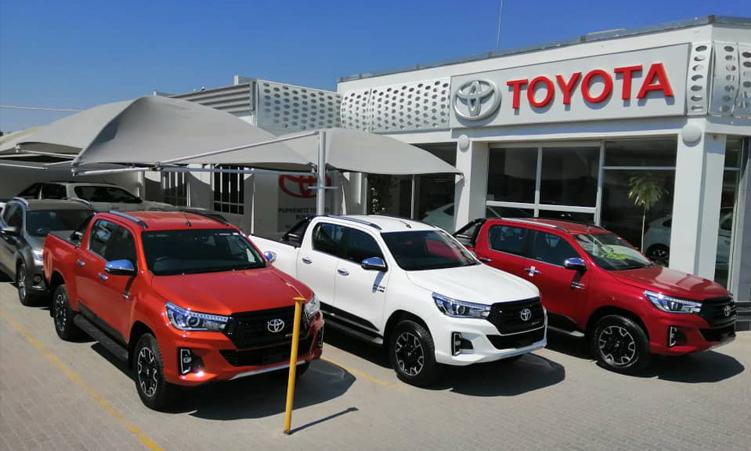Africa-Press – Namibia. Although new vehicle sales dropped in August, Japanese and German makes dominated buyers’ preferences, with Toyota taking pole position.
According to figures compiled by Simonis Storm Securities, total vehicle sales for August dropped to 995 units from 1 172 units in July 2024 and 1 101 units in August 2023, marking contractions of 15.1% month-on-month (m/m) and 9.6% year-on-year (y/y).
Of the units sold, Japanese vehicles led the market, selling 671 units and capturing 67.4% of total sales.
“This dominant position underscores the trust placed in Japanese brands, particularly Toyota, renowned for its reliability, durability and affordability,” says the analysts.
German vehicles came second with 118 units sold, representing 11.9% of the market and reflecting the enduring appeal of German engineering and performance, notably from Volkswagen and Mercedes-Benz, Simonis adds.
American brands also held a notable share, with 81 units sold (8.14%), driven largely by demand for Ford models.
South Korean vehicles sold 51 units, accounting for 5.1% of the market with Kia resonating strongly with Namibian consumers, admired for its modern designs and innovative technology.
“These figures highlight the diverse consumer preferences in Namibia’s automotive market, with a distinct inclination towards Japanese, German and American vehicles,” says Simonis.
The overall sales downturn was driven by decreases in both passenger and commercial vehicle segments.
Passenger vehicle sales dropped by 21.8% m/m, from 564 units in July 2024 to 441 units in August 2024.
New commercial vehicle sales decreased by 8.9% m/m, from 608 units to 554 units over the same period.
During the period under review, dealerships remained the primary purchasers, accounting for a substantial 97% (965 units) of total vehicle sales.
“This dominance underscores the role of dealerships in maintaining inventory levels,” says Simonis, adding that rental agencies contributed 3% (30 units) of sales, exclusively acquiring Toyota models — specifically 20 Corolla Quest units, eight Hilux units and two Fortuner units.
Light commercial vehicles (LCV) dominated the market, with 483 units sold, reflecting ongoing business and trade activities.
The sustained demand for LCVs indicates that while overall economic activity may have slowed, essential services and industries continue to operate and require vehicle support.
“Passenger vehicles followed closely with 441 units sold, but the noted decline suggests that individual consumers may be delaying purchases due to economic pressures,” says Simonis.
Sales of extra heavy commercial vehicles and medium commercial vehicles both amounted to 30 units each.
“These figures point to continued investments in large-scale infrastructure and industrial projects, albeit at a moderated pace.
“The procurement of such vehicles often aligns with long-term planning and capital projects, which may not be as immediately affected by short-term economic fluctuations,” says the analysts.
Heavy commercial vehicles accounted for 9 units, and only two buses were sold throughout the month.
For More News And Analysis About Namibia Follow Africa-Press






